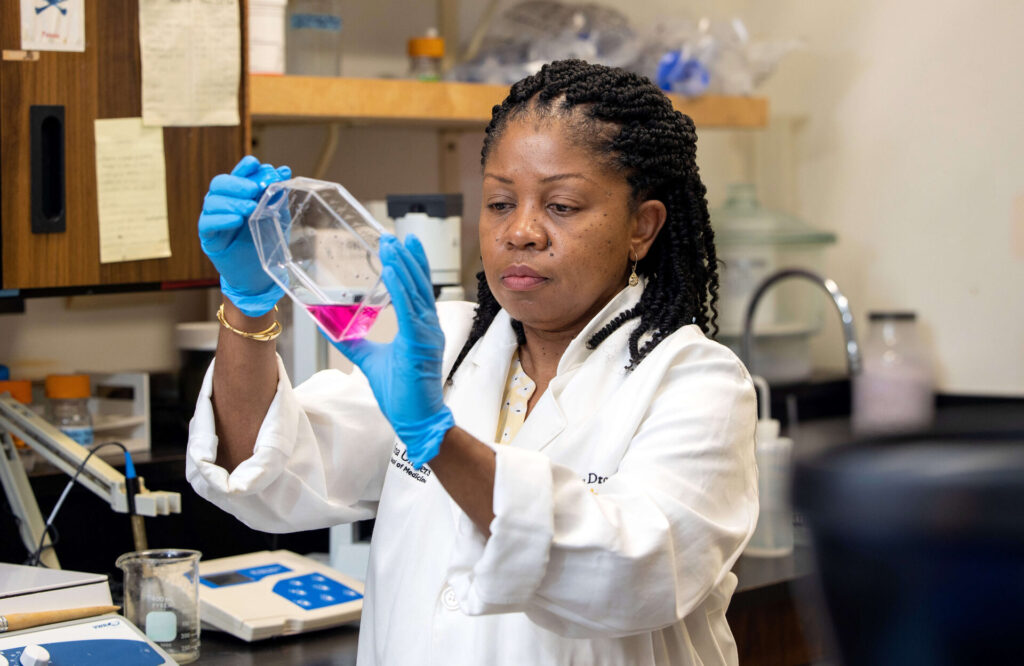NCInnovation in Practice: The Story of Dr. Rukiyah Van Dross
Dr. Rukiyah Van Dross has spent the past 12 years researching a novel therapeutic for melanoma. The work is personal for her: Cancer claimed the lives of her mother and her father.

Dr. Van Dross’s therapeutic has proven effective in controlled lab settings. To advance to FDA analyses and potential human trials, Dr. Van Dross must scale up production of the therapeutic, an expensive proposition. Dr. Van Dross is now transitioning from the academic phase of her research to the commercial phase – she’s going from the “R” for research to the “D” for development.
It’s this phase, the final leg of the R&D sequence, that commercialization challenges exist.
Dr. Van Dross said herself, “I’m a scientist, not a businessperson.” ECU provided extensive support to Dr. Van Dross the scientist, and NCI can help support Dr. Van Dross the businessperson. That support involves two spheres: funding to scale up production, and mentorship to navigate the complex business world:
Funding. NCI has spoken frequently about the so-called “valley of death” – the gap between when a product reaches proof-of-concept to when it becomes commercially investible through private equity or venture capital. Dr. Van Dross is approaching that valley.
Though Dr. Van Dross’s therapeutic shows great promise, a research output at that stage will not generally attract private capital just yet. But Dr. Van Dross cannot reach the next stage without funding to produce more of her therapeutic for FDA analysis. It’s this phase of the university R&D sequence – the last leg of the relay race – that NCI will target.*
Business acumen and support. Funding is not the only component to a successful commercialization process. NCI can also offer business mentorship, connections to investor networks, business model development, pitch development, legal support including IP protection, and a litany of other decidedly non-scientific business development support services.
This is the support that NCInnovation can offer to Dr. Van Dross and other researchers, and this is the support for which other states have allocated billions of dollars. If Texas or Georgia called Dr. Van Dross tomorrow and said, “We want you here. We’ll give you funding, mentors, and business acumen – grow here, with us,” she may very well have to say yes. It wouldn’t be the first time this type of poaching of our talent from other states has happened.
In this way, NCInnovation will support “homegrown innovation” – we will work to develop commercial innovation at North Carolina universities, build innovation ecosystems, and keep the rewards of that innovation here in North Carolina.
* NCI has spoken at length with Dr. Van Dross, but we of course cannot commit to supporting her work until she has gone through our formal application and review process. This and other case studies exist for explanatory purposes and do not represent a commitment to any particular project or researcher.